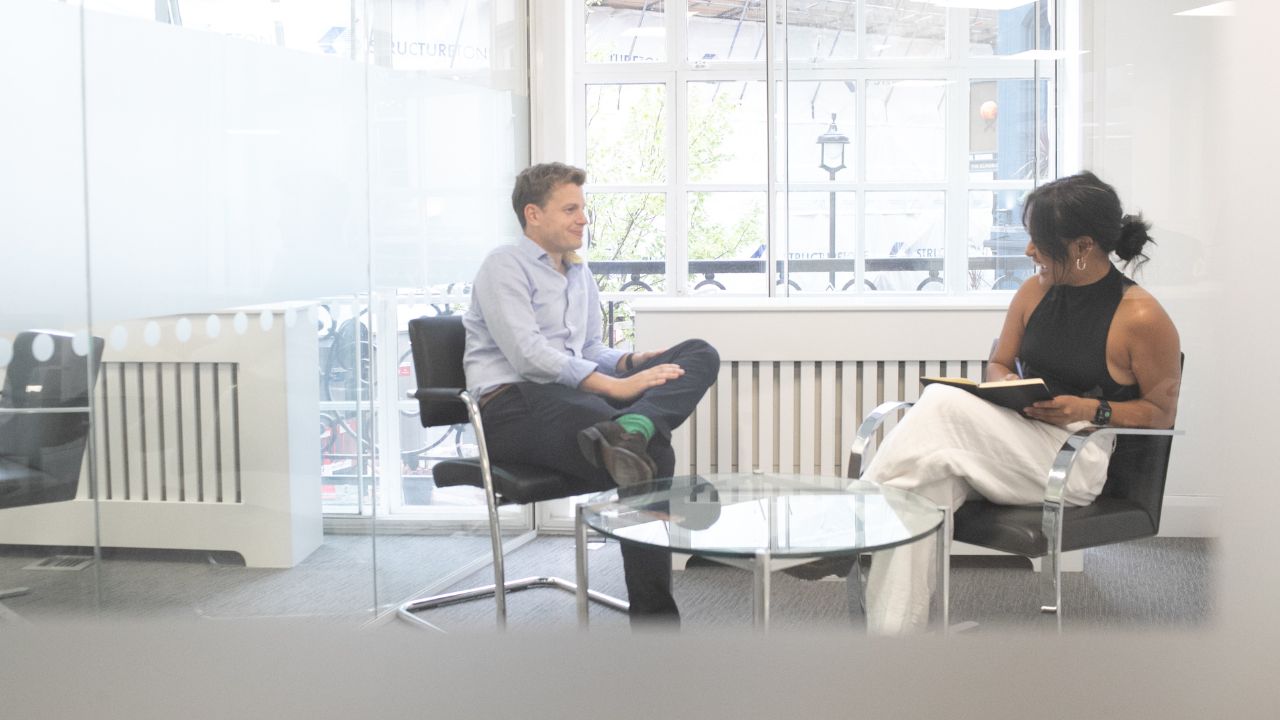
The potential future employer isn’t the only one who should be asking questions during an interview, but what should (and shouldn’t) you be asking?
Often candidates are so focussed on the task of answering an employer’s questions (and other things, like getting their body language right) during an interview to the best of their ability that they forget that an interview is actually a two-way conversation. You, the candidate, need to ask questions too.
It is crucial to remember that the stage of the interview where the employer puts down their pen and asks “do you have any questions for us?” is not the end of the interview.
Remember: you’re being assessed from the moment you step into the organisation’s building until the moment you leave (I’ve known hiring managers ask receptionists for feedback on a candidate before and after a meeting!). The stage of the interview where you get to question the employer can be just as important as the earlier phase of the discussion.
But before detailing the six questions you should ask, what shouldn’t you ask (at least until an offer has been extended, that is)?
Questions You Shouldn’t Ask an Interviewer
First, don’t ask questions that might give the impression that you haven’t adequately researched the organisation before the interview. Employers despair at candidates who ask for more information about the company or what challenges it faces over the next few months and years since it is the precisely the answers to these types of questions that you should have researched before the interview.
Second, don’t ask questions that might make the interviewer doubt your commitment to the job. Of course, you’re interested in how much holiday you’ll get, whether you can work from home some days or what time most people generally pack up and leave the office for the day. But ask a hiring manager these in an interview and alarm bells will start ringing as to whether you’re really going to put in the effort.
Finally, don’t ask questions about salary or benefits. It’s pretty common for candidates to blankly scrabble around for a question when the opportunity arises at the end of the interview only to blurt out: “how much will I be paid?” If it hasn’t been discussed directly during the interview, it will be discussed after the interview if an offer is extended, so hold off on these types of questions at the interview itself.
What, though, should you be asking?
Questions You Should Ask an Interviewer
The chance to ask questions of the interviewer — your potential future boss — is an opportunity you do not really want to miss. Answering the interviewers questions well is one thing, but what will really distinguish you from the others is actively participating in a conversation with the hiring manager.
You need to ask good questions at the end of the interview for two reasons: first, to further reinforce to the interviewer that you’re interested and you’re the right person for the job; and second, to obtain valuable information for yourself, so that you can make a more informed judgement about accepting a possible offer.
It is best to prepare some questions in advance and to have them noted down for quick reference during the interview. You’ll want to adapt questions to the particular role and organisation, but here are six of our favourite questions to get you started.
#1 “Can you tell me how you came to be at the organisation and why you’ve stayed?”
We like this question because the interviewer’s answer will not only provide you with insight into the company’s workplace culture and atmosphere, but it also builds a relationship between you and the hiring manager. Remember that people love to talk about themselves and will likely remember you as being the candidate who was genuinely interested
in them — important if they are to be your line manager.
#2 “What new skills can I hope to learn here?”
This is a good question because, on the one hand, it lets the interviewer know that you don’t simply want to apply your existing skills, you also want to continue to improve and to learn new things. On the other hand, the interviewer’s answer will give you an insight into the company’s workplace culture, whether they value personal development and the sort of learning opportunities you can expect if you accept an offer.
#3 “How has this position evolved since it was created?”
Getting the hiring manager to give a brief history of the role gives them a chance to explain in their own words how central the position is to their team and also provide insight into whether the position has expanded or stagnated over the years. If the interviewer tells you how the role has expanded beyond its original scope that signifies an opportunity for growth within the company. If, on the other hand, it has been static you should be concerned about the potential for personal development.
#4 “If you could improve one thing about the company, what would it be?”
This is another great question for building a relationship with the interviewer by taking a genuine interest in their views. It should also give you some useful insight into what it is you’re likely to be up against if you accept an offer. If, rather than setting out a genuine challenge, the interviewer responds with bland generalities or that there is nothing that could be done to improve the organisation that tells you a lot too.
#5 “How do you see the work I’ll be doing in this role as contributing to the organisation’s mission?”
If you’re looking for a role in which you can develop and contribute to the future of the organisation, then this is a great question to ask. Remember that the interview is also a chance for you to judge whether the position is the right one for you. The interviewer’s response to this question — in particular whether they can (or cannot) clearly articulate the organisation’s mission and the contribution of this position to that mission — will give you really useful insight into the role.
#6 “Is there anything I can help to clarify that would make hiring me an easy decision?”
This is quite a bold question to ask and you should judge the mood of the interview before asking. However, in the right circumstances, it can be one of the most effective questions to ask. Why? Because it shows that you’re eager to get the job, that you’re amenable to feedback and open to discussing your vulnerabilities, that you’re confident in your abilities and that you always seek to avoid uncertainty and ambiguity. Be careful with this one, you’ve got to judge it right, but in certain scenarios it’s a great ‘close’ to an interview.
Are you ready to seek out your next opportunity? Check out the latest jobs on offer via 3Search on the jobs listings and follow us on Facebook, Twitter and LinkedIn for the latest updates.


